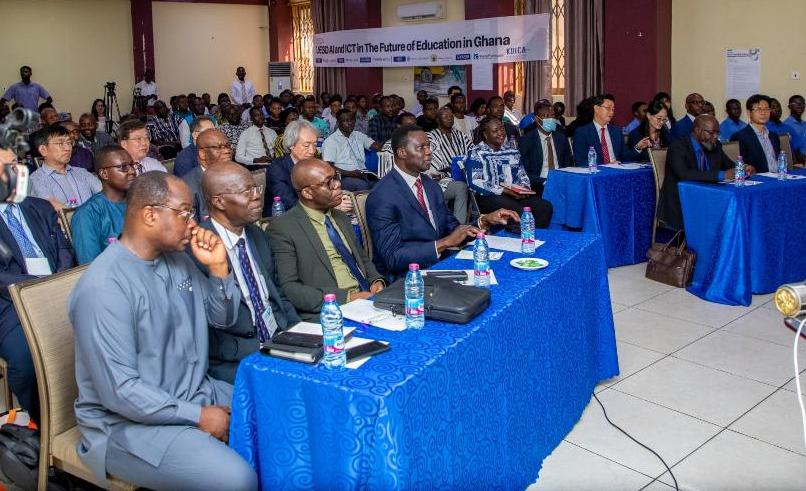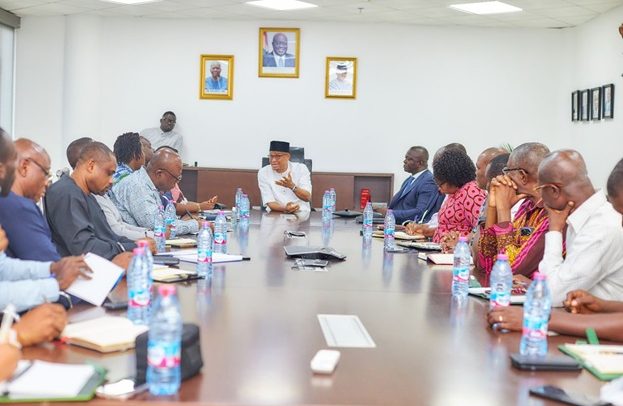
The Minister of Food and Agriculture, Mr Eric Opoku, has called for a shift from traditional subsistence farming to a competitive and sustainable agri-food economy that guarantees food security, jobs, and export growth for the country.
According to him, transforming the country’s agricultural sector into a dynamic, modern and resilient system was crucial to meeting national development goals.
The Minister made the call at the opening of the 2025 Annual Conference of the Ghana Association of Agricultural Economists (GAAE) at the Kwame Nkrumah University of Science and Technology (KNUST), Kumasi, on Thursday.
The three-day conference was on the theme: ‘Transforming Agri-Food Systems in Developing Economies through Sustainable Agribusiness Development.’
The Minister described the theme as timely, saying it reflected one of the greatest economic opportunities for Ghana in the face of rising food imports and increasing pressure on farmers to produce more under difficult climatic conditions.
He noted that although agriculture contributed about 20 per cent to the country’s Gross Domestic Product (GDP) and employed about one-third of the national workforce, the sector continued to face productivity constraints, post-harvest losses and import dependence.
“Ghana’s annual food import bill exceeds $3 billion, driven largely by the importation of rice, poultry and processed foods,” he said, adding that, “The challenge before us is not just to produce more food, but to transform our entire agri-food system to make it profitable, inclusive and environmentally sustainable.”
Mr Opoku also stated that Africa’s food and agribusiness market was projected to exceed $1 trillion by 2030, stressing that the country must position itself to take advantage of that potential through strong value chains, innovation and sustained investment in agribusiness.
Outlining government’s policy direction, the Minister noted that the Feed Ghana Policy and the 24-Hour Economy Policy were key pillars for transforming the agricultural landscape.
The Feed Ghana Policy, he explained, aims to strengthen domestic food production through increased access to improved seeds, irrigation development, mechanisation, post-harvest infrastructure and agro-processing to boost productivity and reduce waste.
On the 24-Hour Economy initiative, Mr Opoku said it would promote around-the-clock operations in food logistics, processing and storage, thereby reducing delays, improving market efficiency and creating employment for the youth.
Furthermore, he underscored the vital role of academia, researchers and agricultural economists in supporting the transformation drive through evidence-based policies and innovative research that link directly to industry needs.
Highlighting the importance of youth participation, Mr Opoku urged young people to take advantage of emerging opportunities in digital agriculture, technology-driven solutions and agribusiness entrepreneurship to revitalise the sector.
Touching on sustainability, the Minister expressed concern over the impact of climate change on agricultural productivity, citing recent losses due to droughts, erratic rainfall and declining soil fertility.
Moreover, he indicated government had prioritised climate-smart agriculture, efficient water management and soil health restoration as part of its resilience strategy.
BY TIMES REPORTER
???? Follow Ghanaian Times WhatsApp Channel today. https://whatsapp.com/channel/0029VbAjG7g3gvWajUAEX12Q
???? Trusted News. Real Stories. Anytime, Anywhere.
? Join our WhatsApp Channel now! https://whatsapp.com/channel/0029VbAjG7g3gvWajUAEX12Q

The post Let’s shift to sustainable agri-food economy -Minister appeared first on Ghanaian Times.
Read Full Story






















Facebook
Twitter
Pinterest
Instagram
Google+
YouTube
LinkedIn
RSS